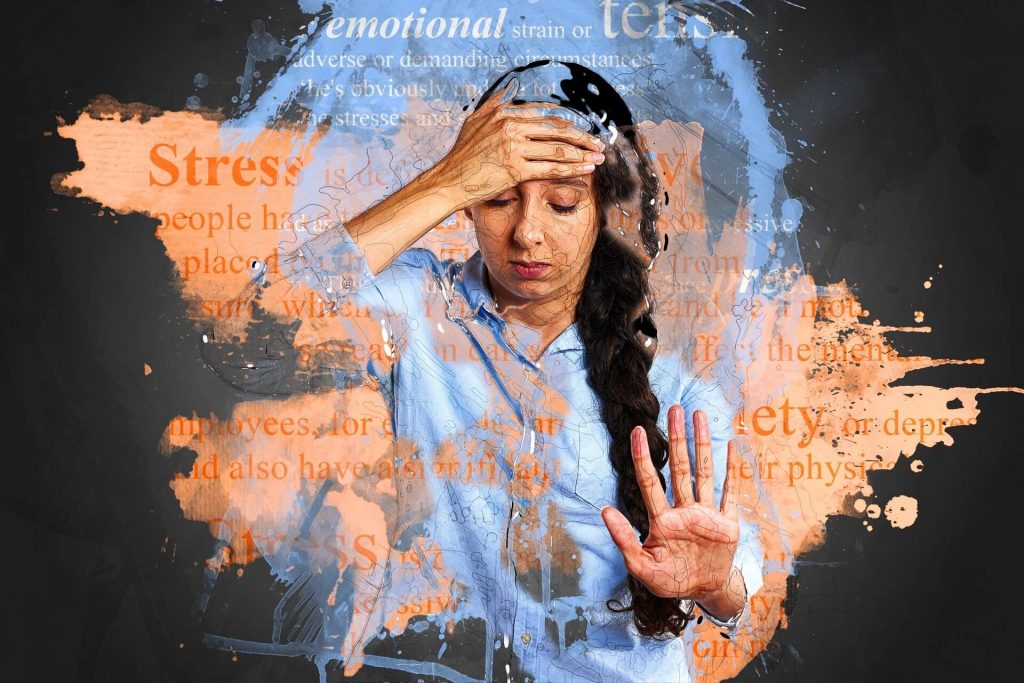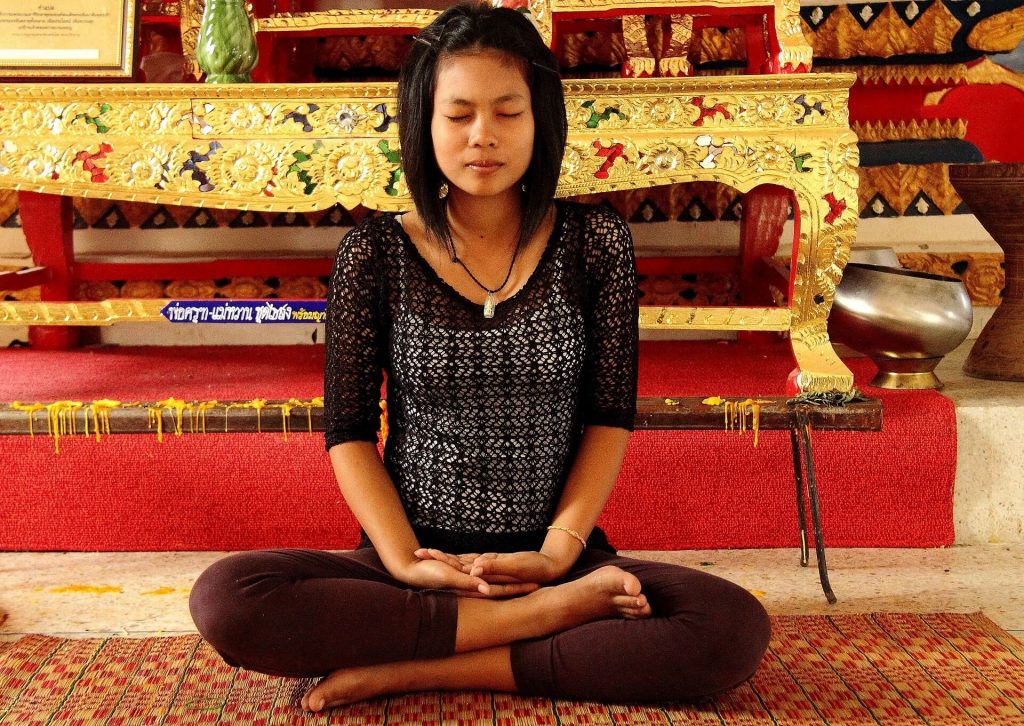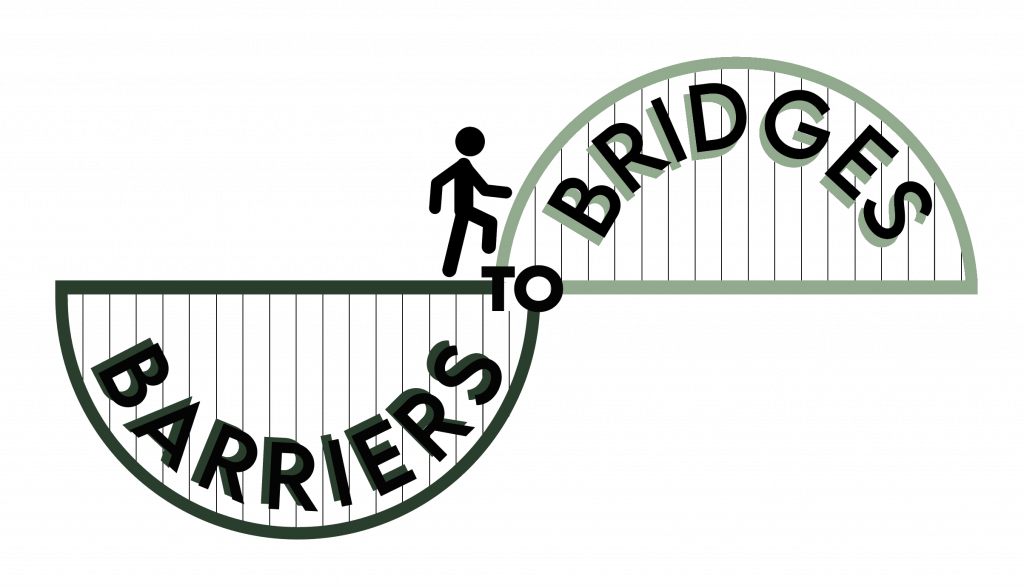by Aimen Arshad
We live in a fast-paced world. The constant demands of work and personal life leave many of us overwhelmed and exhausted. While the rise of technology and social media have revolutionised how we connect, they have also created a new set of stressors that heavily affect our mental health. For instance, social media platforms can feel competitive, pressuring users to present a curated version of their life. Likewise, with information coming from all directions, spending time offline is hard. Unsurprisingly, mental health issues, like anxiety and stress, have become widespread. The great news is that you are not alone. Recent data shows that 6 in 100 people in the UK are diagnosed with anxiety – which means plenty of others are also navigating these choppy waters alongside you.
“I heard about mindfulness meditation while studying for an MSc in Health Psychology… I did it for about 5 years, and it definitely helped with my anxiety and physical symptoms, especially stomach and digestive issues.” Anneliese Levy.
Anxiety can hit hard on both the mind and the body. The pervasive fear and unease can weigh you down, making even the simplest tasks daunting. It can also wreak havoc on your physical well-being. Symptoms like digestive issues can be debilitating, and chronic worry can lead to unrelenting exhaustion. As if that’s not enough, the unexpected panic attacks that can strike at any moment can leave you helpless. On top of it, persistent headaches can make it nearly impossible to get a good night’s sleep.

Anneliese Levy, a research consultant, remembers her anxiety as old as twenty-one. She shares her anxiety signs as both physical and mental, “I have had anxiety since childhood, but it manifested in my 20s. My symptoms were racing, worrying, and thinking about ‘worst case scenarios’ – a general feeling that something bad would happen. I also had physical symptoms like palpitations and stomach issues.”
As the anxiety continues to weigh us down, it can quickly spiral out of control, leading to even more concerning issues. The good news is that some strategies can help your anxiety calm down, and meditation is one of them. Meditation is gaining popularity as an effective tool to relieve anxiety and stress on and off social media. Approximately 275 million people worldwide, and 8.29% of the UK population is practising it.
Anneliese shares her experience of knowing meditation, not from her doctor but from her tutor. “I heard about mindfulness meditation while studying for an MSc in Health Psychology. My tutor led us through a short session, and I enjoyed it. So, I joined some local classes. I did it for about 5 years, and it definitely helped with my anxiety and physical symptoms, especially stomach and digestive issues.”
Let’s explore what meditation is and how it is effective for anxiety.
Meditation is a mental exercise that involves focusing on a particular object, activity, or thought to achieve mental clarity. When you feel anxious, your body activates a part of your nervous system that makes you want to fight or run away. Your heart rate and blood flow become faster. This is usually very intense and keeps you stressed. Regular meditation relaxes your nervous system. Your heart rate slows down, and blood flow improves, which makes you feel less anxious.

Dr Roseann Capanna-Hodge, Educational Psychologist, Therapist, and Board Certified in Neurofeedback, stresses meditation as an effective tool to lower anxiety levels. She explains, “Meditation decreases mental health symptoms by calming the brain. It takes the brain from a stressed state to a calm, relaxed state that feels good.”
By promoting relaxation, meditation can help you think clearly, pay attention, and make healthy changes to improve mental health. Dr Capanna-Hodge also points out research from 2022 which shows meditation is as effective as psychiatric medication in reducing anxiety.
“Meditation serves to ease worried and fearful thoughts by calming the areas of the brain that cause us to react to stress and relaxing the body. When stressed, the brain reacts and can misinterpret simple stressors as threats. With no side effects, age limits, or cost, meditation is a science-backed and effective way to treat anxiety”, adds Dr Capanna-Hodge.
It’s fascinating to consider the impact of meditation beyond the mind and into the gut. The gut is home to a vast ecosystem of tiny organisms collectively known as the microbiome. Microbiome plays an important role in your overall physical and mental health. Research suggests that your gut and brain can communicate with each other when you have a healthy balance of microbiomes. But, certain lifestyle factors, e.g., smoking, infection, etc., can throw off this balance. The connection to the brain is compromised, leading to anxiety. Fortunately, meditation brings back the healthy gut microbiome balance, improving anxiety and stress.
“A healthy gut is needed for the immune system and brain to work properly. High-stress levels can hurt the brain and immune system by interfering with the gut-brain connection. Studies show us that meditation helps improve the body’s stress response and reduces the infection, which leads to healthy gut-barrier function” Dr Capanna-Hodge explains how meditation improves brain function to relieve anxiety, eventually.
Meditation can take many forms. You can choose to focus on physical sensations or your breathing rate. Likewise, concentrating on your emotions, repeating a sound, or staying aware of your surroundings also works. But everybody is different, so choose a practice that brings peace to you. The good thing is doing meditation for even 15 minutes twice a day can calm down your nervousness.
While anxiety can profoundly impact our lives, meditation is a natural tool for managing anxiety. It calms racing thoughts and improves gut health to alleviate physical symptoms, e.g., digestive issues. So the next time you feel overwhelmed with anxiety, take a deep breath, find a quiet place, and meditate. Your mind and body will thank you for it.
© 2023
